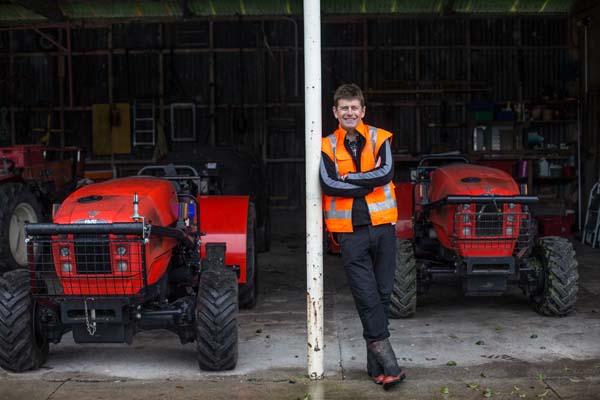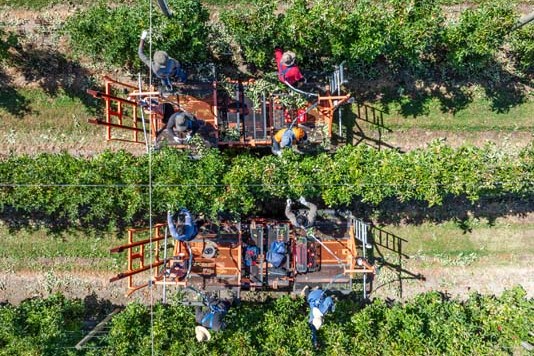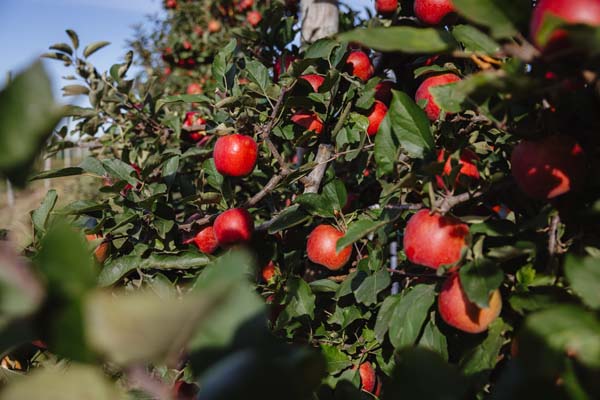A focus of Primary ITO dairy farming programmes is that people can learn skills when it matches what’s happening on the farm. By Elaine Fisher.
 The workplace, including a dairy farm, is very much the classroom of the future, says Jeff Wilson, Primary ITO’s National Manager Agriculture and Horticulture.
The workplace, including a dairy farm, is very much the classroom of the future, says Jeff Wilson, Primary ITO’s National Manager Agriculture and Horticulture.
“People can use new skills as they learn them and much of the educational component of training is demonstrated by what they do in the workplace.
“We’re also told repeatedly by employers that staff respond well to the opportunity to train, adding more value to the farm and staying longer,” Wilson says.
Until the end of December this year, Primary ITO dairy farming training is fees-free as part of the Government’s response to Covid-19, but financial support is still available beyond that date.
“Employers and learners enrolling now will be asked to pay fees for any portion of their training extending into 2023. There’s still significant financial support included for training as Primary ITO receives government funding for industry learners enrolling in training. This covers a lot of the costs of training, with fees also contributing.”
Wilson says it isn’t compulsory for employers to have their staff complete Primary ITO training.
However, many employers find that training helps them manage some of their compulsory requirements such as being a responsible farm business and safety and environmental management.
“We’re about helping farm owners and employers grow their business through growing their people. Building the capabilities of the people in the business is the quickest and smartest way to grow the business.”
A big part of on-the-job learning is gaining the right skills at the right time. Primary ITO dairy farming programmes are set up so that people can learn skills when it matches what’s happening on the farm – for example calving and milking in the right seasons.
“In developing our training programmes, we rely on a panel of sector experts to make sure they’re relevant for the industry. In dairy farming, a group of around 12 dairy farmers and others in the dairy industry provide that guidance.”
Primary ITO can support dairy farmers at all levels of expertise on the farm from people just starting out to their careers as farm assistants, herd managers, assistant managers, farm managers and beyond. A learner might start out with a programme aimed at giving them the skills to be prepared to work safely on the farm, progress through more training and even a full apprenticeship, right through to a NZ Diploma.
“For most of our training programmes, people need to be working in the industry and their employer needs to be committed to supporting training. Like most types of education, different programmes do have requirements for entry. As an example, to enrol in a New Zealand Apprenticeship in Agriculture – Dairy Farming, learners must be employed in the sector and have worked for at least a year full-time on a farm. For entry-level programmes like a Level 2 New Zealand Certificate in Primary Industry Skills – Agriculture, learners just need to be employed in the sector.”
One specific requirement for work visa holders is that they can only enrol in a training programme that can be completed in the time before their visa expires.
“Primary ITO does have some special support for people whose first language isn’t English. We have training handbooks in Samoan, Hindi, Tagalog and Spanish and also work with English Language Partners New Zealand to support employees to learn some of the Kiwi English that’s useful on the farm. We also have a network of voluntary mentors around the country who help employees with their Primary ITO training.”
Primary ITO works with school students through its Trades Academy, which is the biggest in NZ. Through the academy students gain work-ready skills through practical training in realistic working environments while still enrolled at school.
“Our work-based learning starts at Level 2 on the New Zealand Qualifications Framework. That is aimed at supporting employees who are new to the sector to get the skills and knowledge to be safe on the farm and do their jobs confidently. Some of the topics include the safe handling of livestock and behaviours, fencing, and assisting with feeding and calving.”
At the other end of the scale, Wilson says farmers can complete Level 5 programmes like a NZ Certificate in Primary Industry Production Management, a NZ Diploma in Primary Industry Business Management, or add some specific skills through a micro-credential in biosecurity.
Training, Wilson says, is for people of all ages. “Our youngest dairy farmer in training last year was 15 years old who enrolled to learn about milk quality and food safety.”
ITO now part of Te Pukenga
Primary ITO has now become a division of Te Pūkenga Work-Based Learning, along with other industry training organisations across sectors like building and construction, automotive and service industries.
“Te Pūkenga – the New Zealand Institute of Skills and Technology – is building a national network bringing together on-the-job, on-campus, and online learning that supports learners, employers and communities,” Primary ITO division director Nigel Philpott says.
“Together it has around 240,000 learners making it the thirty-five biggest educational institute in the world.”
“Joining Te Pūkenga will mean Primary ITO staff have more ability to access best practice, knowledge and talent across our vocational education network.
“Over time we’re looking forward to learners around New Zealand getting more and better access to training, whether they’re on a farm in the Chatham Islands, an orchard in Central Otago, or public gardens in Auckland.
“Our learners and employers can expect to see their same trusted Primary ITO people,” Philpott says. “And we’re very much focused on helping New Zealand businesses get the skills they need.”





